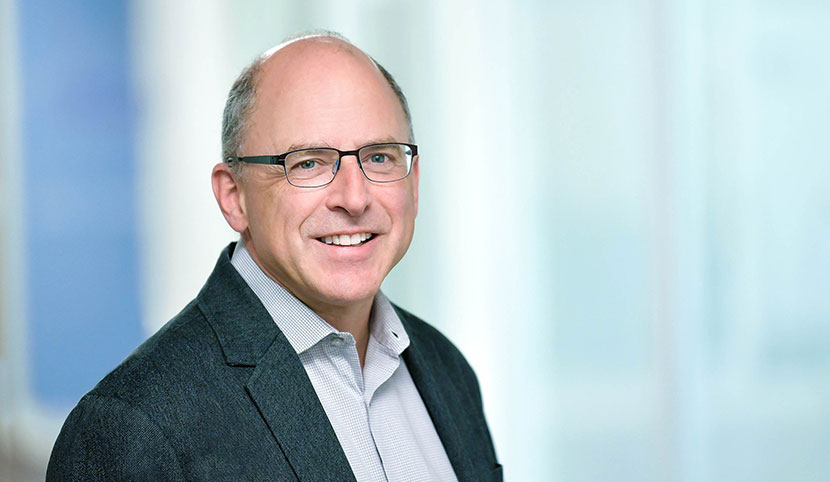Changing the paradigm for international research collaboration.
We spoke with ICGC founding executive director Tom Hudson and reflected on 12 years of the ICGC, and how its impact has extended beyond scientific discovery.

They descended upon Toronto from around the world: 122 agents of change, representing 22 countries.
Their mission, should they choose to accept it: Build a comprehensive cancer genomics atlas covering all major tumor types and subtypes that are of main importance across the globe.
The year was 2007. Apple launched the iPhone, NASA launched the Phoenix Mars Lander, and Canadian geneticist Tom Hudson, O.C., M.D., launched the International Cancer Genome Consortium.
Called upon by the European Commission, Genome Canada, the National Cancer Institute, the National Human Genome Research Institute, the Ontario Institute for Cancer Research, and the Wellcome Trust, Hudson gathered together not only world leaders in cancer genomics research, but also experts in ethics, statistics, informatics, and pathology, and directors of funding agencies.
They had their work cut out for them.
The scale of ICGC was unprecedented, as were the logistical challenges, such as standardizing specimen collection and analysis, as well as patient consent and data sharing in light of different legal frameworks among nations. Their ambitious goal: to define the genomes of 25,000 primary untreated cancers and make global genomic data sharing for cancer possible, providing the international community with comprehensive genomic data for many cancer types.
But the group - which ultimately involved 86 project teams in 22 jurisdictions on nearly every continent - not only overcame all of these challenges, they set new standards that have transformed international research practices.
“The timing was right. We were at an inflection point,” said Hudson, current Chief Scientific Officer at AbbVie, who was leading the newly created Ontario Institute for Cancer Research at the time. “The technology was coming along; we were coming to new understandings in genetics. We knew that cancer genomes were full of mutations, and there was a huge expectation that if we just sequenced more genomes, we’d find more targets to drug.”
The first few years were messy, Hudson admits. But by the fourth year, the discoveries were coming fast and furious.
“We were seeing cancer genes of types never seen before. Whole new sets of pathways were being identified,” Hudson said. ”We thought we were going in there to find new cancer genes, but we also discovered that the genome itself was something that could be used to make diagnoses and select drugs.”
In order to do that successfully, however, the scope of ICGC has to grow beyond discovery, to incorporate more longitudinal and clinical data.
“It was good for finding genes, but not so good for understanding the link between those genes and clinical outcomes,” Hudson said. “We were only scratching the surface of what can be discovered.”
As part of the latest stage of the consortium, ARGO (Accelerating Research in Genomic Oncology), researchers are adding detailed clinical and treatment annotation to the ICGC’s cutting-edge collection of molecular analyses. This will include information concerning lifestyle, co-morbidities, diagnostics, toxicity and response to therapy, and survival. In addition, they have set an ambitious goal of analyzing the genomes of more than 100,000 participants by 2028 and enhancing data management models to reflect the increased scale, scope and complexity of the project.
Using this large-scale integrated data, researchers, scientists, policymakers and clinicians will be able to work with patients, health care providers, industry, and others to advance therapeutic development with interventions based on matching patients’ disease molecular subtypes with the most effective treatments; develop preventative strategies; identify markers for early detection of disease; and create more specific criteria and methods for diagnosis and prognostication.
The ICGC project has already proven the power of working collaboratively across continents to enable comparable studies of different types of cancer and to capture the diversity of cancers worldwide.
Studying the similarities and differences of liver cancer driven by alcohol use in France and by Hepatitis C in Asia, for example, has provided valuable insight into environmental influences on cancer and potential prevention strategies. Unexpected links were also made between novel mutations in Eastern European kidney cancer patients and gall cancer patients in Thailand -- both believed to be tied to a plant carcinogen.
“Had we been doing this in isolation, we would not be able to make such links,” Hudson said.
Hudson believes the impact of the ICGC has extended beyond pure scientific discovery, however.
“The exchange of information is as important as what you do at the bench. Leaving data in silos prevents discovery. So we developed approaches to share data safely,” Hudson said.
The ICGC has also set new standards for ethics and governance. For a field that has traditionally viewed ethical rules as barriers to scientific progress, the ICGC broke new ground by including lawyers and ethicists in its fold from the outset.
“They brought a different narrative,” Hudson said. “They argued that patient access to the best science is a human right. Consent and protocols are not about preventing or controlling us from doing everything wrong, they are about doing everything right.”
As a result, patients’ rights have become truly enshrined in the ICGC ARGO program, he said.
“We have a responsibility to do it responsibly, and to do it well,” Hudson added. “We have to find ways to maximize the benefits to current patients, and to bring innovations to the next generation of patients.”